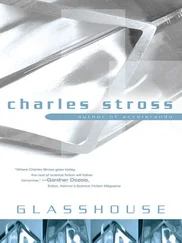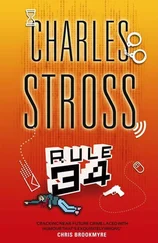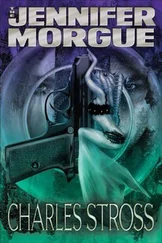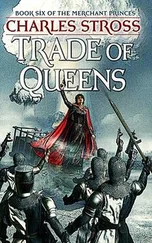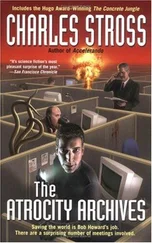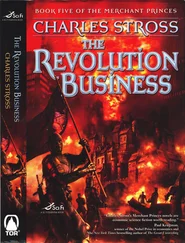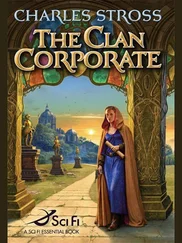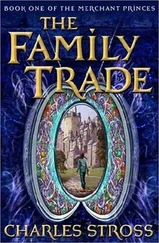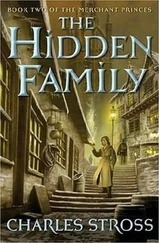Charles Stross - The Merchant’s War
Здесь есть возможность читать онлайн «Charles Stross - The Merchant’s War» весь текст электронной книги совершенно бесплатно (целиком полную версию без сокращений). В некоторых случаях можно слушать аудио, скачать через торрент в формате fb2 и присутствует краткое содержание. Жанр: sf_writing, на русском языке. Описание произведения, (предисловие) а так же отзывы посетителей доступны на портале библиотеки ЛибКат.
- Название:The Merchant’s War
- Автор:
- Жанр:
- Год:неизвестен
- ISBN:нет данных
- Рейтинг книги:5 / 5. Голосов: 1
-
Избранное:Добавить в избранное
- Отзывы:
-
Ваша оценка:
- 100
- 1
- 2
- 3
- 4
- 5
The Merchant’s War: краткое содержание, описание и аннотация
Предлагаем к чтению аннотацию, описание, краткое содержание или предисловие (зависит от того, что написал сам автор книги «The Merchant’s War»). Если вы не нашли необходимую информацию о книге — напишите в комментариях, мы постараемся отыскать её.
The Merchant’s War — читать онлайн бесплатно полную книгу (весь текст) целиком
Ниже представлен текст книги, разбитый по страницам. Система сохранения места последней прочитанной страницы, позволяет с удобством читать онлайн бесплатно книгу «The Merchant’s War», без необходимости каждый раз заново искать на чём Вы остановились. Поставьте закладку, и сможете в любой момент перейти на страницу, на которой закончили чтение.
Интервал:
Закладка:
Morning in Boston: a thick fog, stinking of coal dust and burned memories, swirled down the streets between the brown brick houses, blanketing the pavement and forming eddies in the wake of the streetcars. Behind a grimy window in a tenement flat on Holmes Alley a man coughed in his sleep, snorted, then twitched convulsively. The distant factory bells tolled dolorously as he rolled over, clutching the battered pillow around his head. It was an hour past dawn when a bell of a different kind broke through his torpor, tinkling in the hallway outside the kitchen.
The gaunt, half-bald man sat up and rubbed his eyes, which fastened on a cheap tin alarm clock that had stopped, its hands mockingly pointed at the three and the five on the dial. He focused on it blearily and swore, just as the doorbell tinkled again.
For someone so tall and thin, Erasmus Burgeson could move rapidly. In two spidery strides he was at the bedroom door, nightgown (lapping around his ankles; three more strides and his feet were on the chilly stone slabs of the staircase down to the front door. Upon reaching which he rattled the chain and drew back the bolts, finally letting the door slide an inch ajar. "Who is it?" he demanded hoarsely as an incipient wheeze caught his ribs in its iron fist.
"Post Office electrograph for a Mister Burgeson?" piped a youthful voice. Erasmus looked down. It was, indeed, a Post Office messenger urchin, barefoot in the cold but wearing the official cap and gloves of that institution, and carrying a wax-sealed envelope. "Thruppence-ha'penny to pay?"
"Wait one." He turned and fumbled behind the door for his overcoat, in one pocket of which he always kept some change. Three and a half pence was highway robbery for an electrograph: the fee had gone up two whole pennies in the past year, a sure sign that the Crown was desperate for revenue. "Here you are."
The urchin shoved the envelope through the door and dashed off with his money, obviously eager to make his next delivery. Burgeson shut and bolted the door, then made his way back upstairs, this time plodding laboriously, a little wince crossing his face with each cold stone step. His feet were still warm and oversensitive from bed: with the fire embargo in effect on account of the smog, the chill of the stairs bit deep into his middle-aged bones.
At the top step he paused, finally giving in to the retching cough that had been building up. He inspected his handkerchief anxiously: there was no blood. Good. It was nearly two months, now, and the cough was just the normal wheezing of a mild asthmatic caught out by one of Boston's notorious yellow-gray smogs. Erasmus placed the electrograph envelope on the stand at the lop of the staircase and shuffled into the kitchen. The cooking range was cold, but the new, gas-fired samovar was legal: he lit it off, then poured water into the chamber and, while it was heating, took the bottle of miracle medicine from the back of the cupboard and took two more of the strange cylindrical pills.
Miriam had given him the pills, three months ago, last time she'd visited. He'd barely dared believe her promises, but they seemed to be working. It was almost enough to shake his belief in the innate hostility of the universe. People caught the white death and they died coughing up their lungs in a bloody foam, and that was it. It happened less often these days, but it was still a terror that stalked the camps north of the Great Lakes-and there was no easy cure. Certainly nothing as simple as taking two tablets every morning for six months! And yet... I wonder where she is? Erasmus pondered, not for the first time: probably busying herself trying to make another world a better place.
The water was close to boiling. He spooned loose tea into the brewing chamber then wandered over to the window, squinting against the smog-diffused daylight in hope of glimpsing one of the neighborhood clock towers. He'd have to wind and reset the alarm once he'd worked out by how long it had betrayed him. Still, nobody had jangled the bell-pull tied to the shop door handle while he was sleeping like a log. Business had boomed over the springtime and early summer, but things had fallen ominously quiet lately-nobody seemed to have the money to buy their possessions back out of hock, and indeed, nobody seemed to be buying much of anything. Even the local takers were slacking off on enforcing the vagrancy laws. Things seemed alright in the capital whenever his other business took him there to visit- the rich man's cup spilleth over; the poor man gets to suck greedily on the hem of the tablecloth -and the munitions factories were humming murderously along, but wages were being cut left and center as the fiscal crisis deepened and (he banks called in their loans and the military buildup continued.
Finally the water began hissing and burbling up into the brewing chamber. Erasmus gave up on staring out the window and went in search of his favorite mug. A vague memory of having left it in the lounge drew him into the passage, between the bookcases stacked above head-height with tracts and treatises and rants, and as he passed the staircase he picked up the letter and carried it along. The mug he found sitting empty on top of a pyramid of anlinomianist-utilitarian propaganda tracts and a tottering pile of sheet music.
Back in the kitchen, he spooned rough sugar into the mug. The samovar was still hissing like a bad-natured old cat, so he slit open the electrograph's seal while he was waiting for it to finish brewing. The letter within had been cast off a Post Office embosser, but the words had been composed elsewhere. YOUR SISTER IN GOOD HANDS DURING CONFINEMENT STOP MIDWIFE OPTIMISTIC STOP WHY NOT VISIT STOP BISHOP ENDS.
His eyebrows furrowed as he stared at the slip of paper, his morning tea quite forgotten. Nobody in the movement would entrust overtly coded messages to the government's postal service; the trick was to use electrographs for signaling and the movement's own machinery for substantive communications. But this wasn't a prearranged signal, which made it odd. He'd had a sister once, but she'd died when he was six years old: what this was telling him was that Lady Bishop wanted him to visit her in New London. He stared at it some more. It didn't contain her double cross marker-if she'd signed her first name to a signal it would mean I've been captured- and it did contain her negative marker-if a message contained an odd number of words that meant I am at liberty. But it wasn't a scheduled meeting: however he racked his brains he couldn't think of anything that might warrant such an urgent summons, or the disruption to his other duties.
Does this mean we have a breach? He put the treacherous message down on the kitchen table and turned off the gas, then poured boiling hot tea into his mug. If Margaret's been taken, it's a catastrophe. And if she hasn't -gears spun inside his mind, grinding through the long list of possibilities. Whatever the message meant, he needed to be on a train to the capital as soon as possible.
An hour later, Erasmus was dressed and ready to travel, disguised as himself (electrograph in wallet, along with ID papers). He carefully shut off the gas supply and, going downstairs, hung up the CLOSED DUE TO ILLNESS sign in the shop window. It needed no explanation to such folk as knew him, and in any case the Polis had been giving him a wide berth of late, ever since his relapse in their cells. They probably think I'm out of the struggle for good, he told himself, offering it as a faint prayer. If he could ever shed the attention he'd attracted, what use he could make of anonymity with his age and guile!
It took him some time to get to the new station besides the Charles River, but once there he discovered that the mid-morning express had not yet departed, and seats in second class were still available. And that wasn't his only good fortune. As he walked along the pier past the streamlined engine he noticed that it had none of the normal driving wheels and pistons, but multiple millipedelike undercarriages and a royal coat of arms. Then he spotted the string of outrageously streamlined carriages strung out along the track behind it, and the way the gleaming tractor emitted a constant gassy whistling sound, like a promise from the far future. It was one of the new turbine-powered trains that had been all the talk of the traveling classes this summer. Erasmus shook his head. This was unexpected: he'd hoped to reach New London for dinner, but if what he'd heard about these machines were true he might arrive in time for late lunch.
Читать дальшеИнтервал:
Закладка:
Похожие книги на «The Merchant’s War»
Представляем Вашему вниманию похожие книги на «The Merchant’s War» списком для выбора. Мы отобрали схожую по названию и смыслу литературу в надежде предоставить читателям больше вариантов отыскать новые, интересные, ещё непрочитанные произведения.
Обсуждение, отзывы о книге «The Merchant’s War» и просто собственные мнения читателей. Оставьте ваши комментарии, напишите, что Вы думаете о произведении, его смысле или главных героях. Укажите что конкретно понравилось, а что нет, и почему Вы так считаете.

